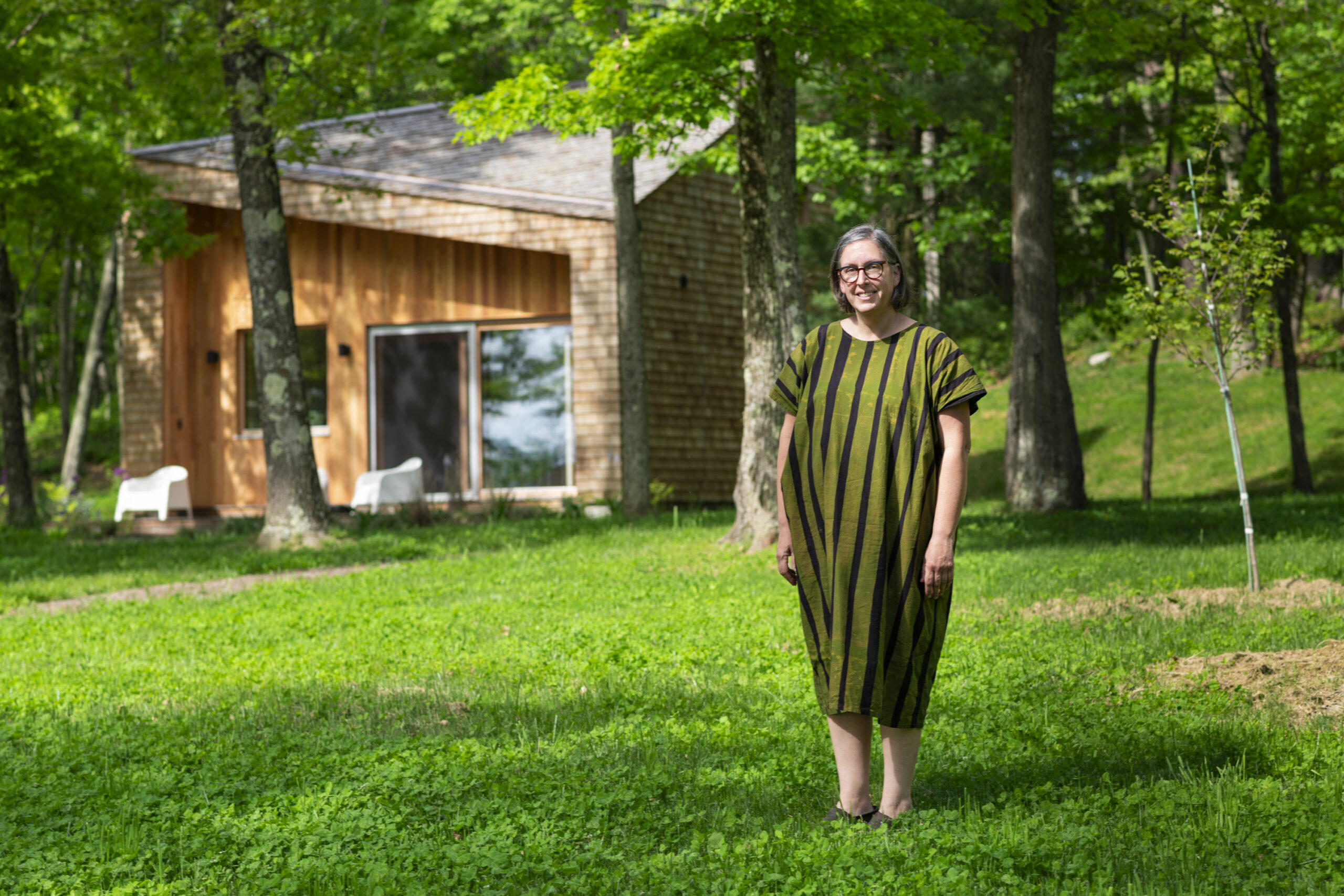Wally Farms creates entrepreneurial models for climate mitigation and resiliency. Their mission is to explore local approaches to food security, energy independence, and steward ownership. They share their experiences to inspire others. Learn more in this interview with Wally Farms’ General Manager, Nena Johnson.
TS: Tell us a little about Wally Farms. What is it setting out to accomplish and what is its mission?
NJ: Wally Farms is a 1,000 acre farm founded in 2018 to provide a platform and resources for climate-resilient, climate-forward agricultural enterprises. We look to help with both the ecological impact those businesses can have and the sustainable financial impact they can have to become successful businesses.
TS: Tell us a little about how you’re doing that.
NJ: The model we’ve settled on is a combination of incubator and accelerator for farm businesses, with some key differences from a traditional incubator. Essentially, farm businesses pitch us. We review these pitches and if the proposal is accepted they get free or low-cost access to land, which is the biggest barrier for beginning farmers, infrastructure like the greenhouse and wash pack facility, and to shared equipment on the 1000-acre property. Additionally, they may access capital funding, depending on the project. We also provide intangible things like educational resources, professional development, and business coaching. It’s about creating a launchpad for folks to be as successful as possible in a crowded and difficult field.
TS: When evaluating those proposals, what criteria are you considering?
NJ: There are both hard and soft criteria. On the hard or skill side, we’re looking at people who have a great track record, even if this is their first farm business. For example, we don’t want someone straight out of an apprenticeship, but someone with some demonstrated skill and experience. We’re looking for folks who can show us a path to profitability. No one’s expecting these businesses to be profitable overnight, but we need to see businesses that are mapping a way to get there and what exactly those timelines look like.
On the softer side, we’re looking for folks who fit into the agricultural community we’re building here. We have a few businesses on site already, and we like to see businesses support one another. The shared equipment piece is really important to be able to work and negotiate together. And then, as important as all of those are, the paramount piece is that they have a demonstrated interest in climate-resilient tactics and ideas around their agricultural practice.
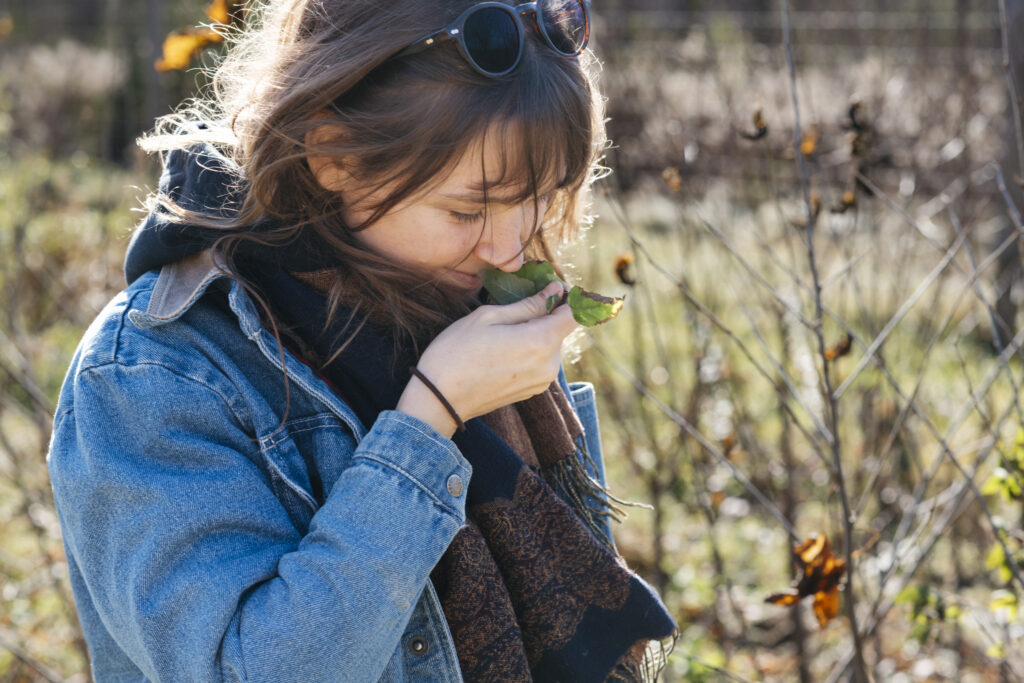
TS: Can you give an example of a climate-resilient tactic with respect to agriculture?
NJ: We want to see them thinking about things like water conservation and reuse, and ways to manage the future instability of those components. We don’t know exactly what the weather is going to be in the future but it will likely continue to be unstable with climate change. So we’re looking for folks who can articulate a plan to address that in their proposal and who are open to ideas from us or other advisors. That includes integrating tech that might be helpful for a small-scale farm business and partnerships with other farmers on the farm who are doing work tackling similar challenges.
TS: When Toolshed thinks about ecology we talk about it from two points of view. One is what people normally associate with ecology: that’s the climate piece, natural ecology, what happens when we mess with ecosystems. But we’re also interested in social ecology, sharing economies, and ecological thinking: relational thinking and shared resources. It sounds like you are engaged in both, particularly in the way you are talking about forging collaboration among the projects and businesses you support. What projects are you currently supporting as you put out the request for proposals (RFP) for additional projects?
NJ: We currently have a few projects on the farm that have been here for a year to eighteen months. One of them is Far Out Container Farm, led by chef Danny Amend. Danny grows hydroponic lettuce year-round in a container garden, as well as making delicious vegetable salts and vinegars. My son calls it the spaceship. He does beautiful salads and sells his product to restaurants all over the area, at farmers markets, and through a subscription service as a mini CSA. Danny’s been with us for a year and a half and is continuing to grow.
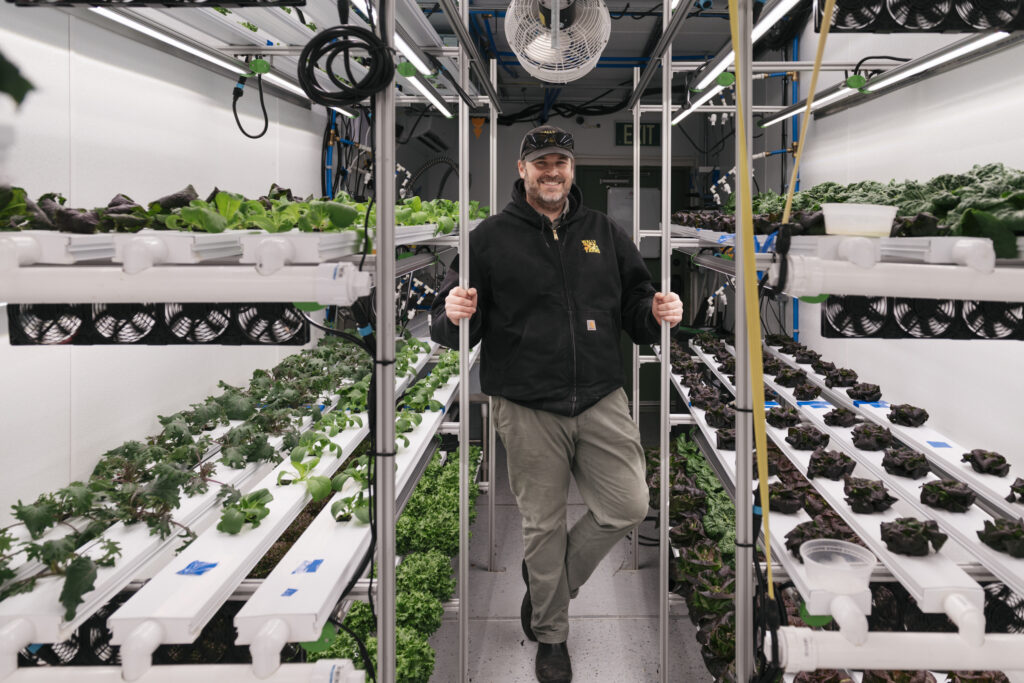
Next, we have agroforester Ryan Serrano and his company Overstory. He cultivates shiitake and wine cap mushrooms, dries those to powder, and is going to sell a broth mix. He also does wild-simulated ginseng, which is another longer-term project that’ll be a few years before harvest. So far the germination rates are really exciting!
We also work with Ryan and another forester to undertake a forest survey, since the majority of the Wally property is currently forested and we are committed to regenerative management practices. They removed a bunch of invasives and are replacing them with native trees as we continue fostering ecological diversity in those ecosystems.
Lastly, Raine Owens runs Vagrant Beekeeping. Raine is a beekeeper and native pollinator landscaper with clients all over the Hudson Valley. He installs hives, cares for the bees, and designs and builds landscapes that foster healthy pollinator ecosystems. He also sells honey and other products like beeswax. He has a number of clients in the area and we’re going to be using him on this property to work on a beautiful but overgrown meadow.
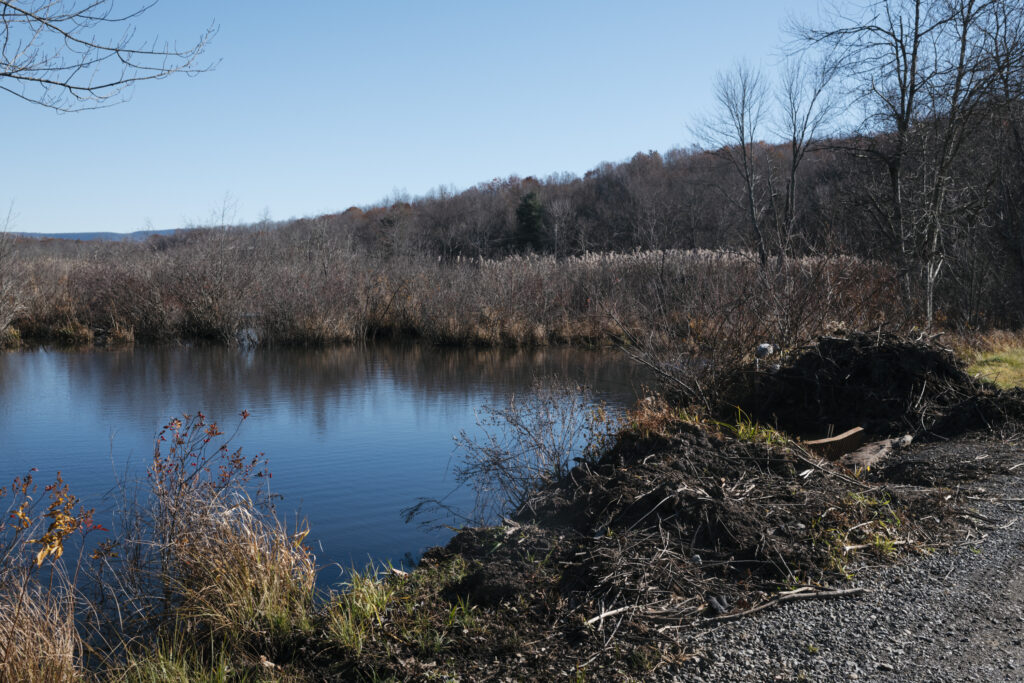
TS: That’s a lot! Let’s go through each of those projects to explore their climate-resilient techniques and tools.
NJ: Thinking about climate resilience with Danny and the Far Out Container Farm is about scale potential and the utilization of resources. As the climate becomes increasingly unstable, we know Danny’s container gardens are able to grow good healthy food in a controlled environment. Danny is making better use of important resources. For example, there’s a lot of water going through that system, but it’s being recycled. The nutrient mix used to feed the plants is one that Danny has been refining over time, and it is a super clean, completely natural. And of course, generally speaking, the advantage of the container is being able to grow year-round.
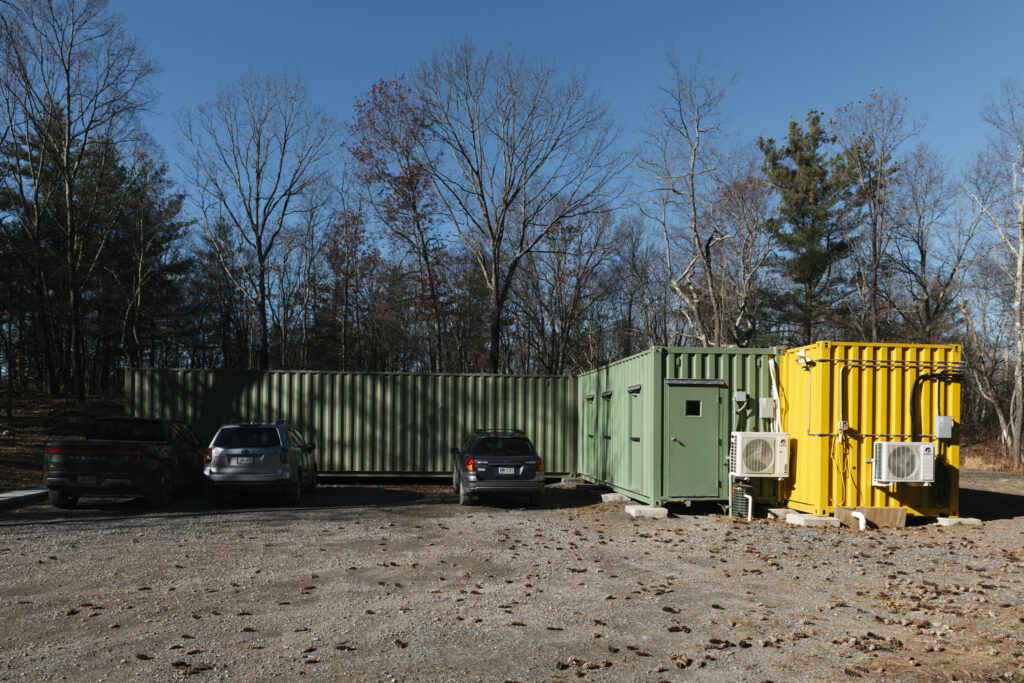
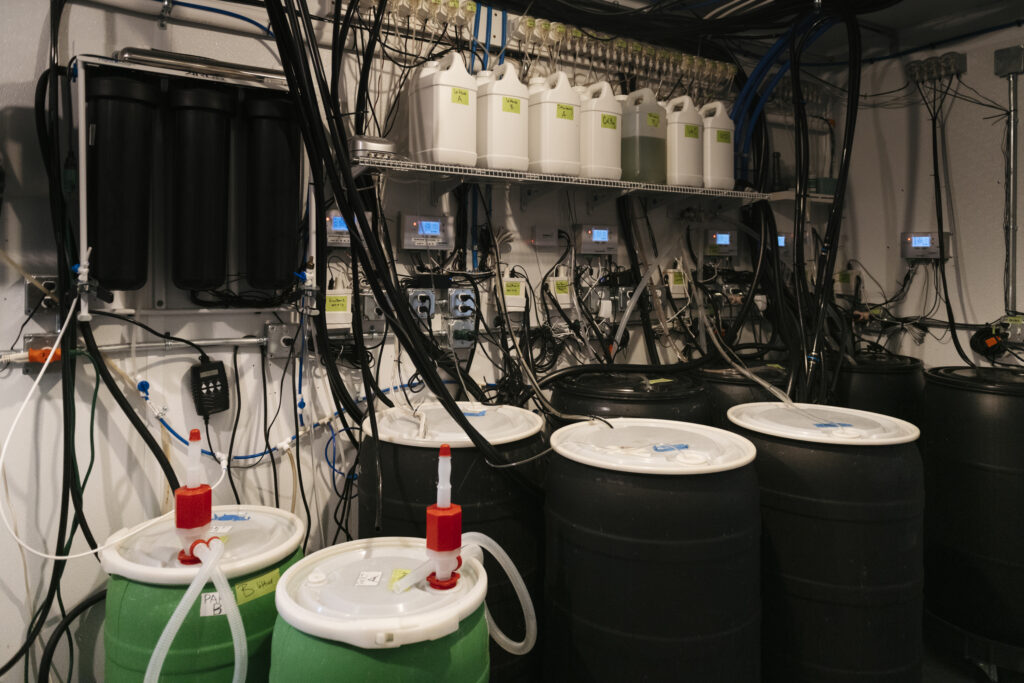
TS: Is there an urban farming utility for container farms, thus lowering the carbon footprint involved in shipping food?
NJ: Yes, absolutely. Danny’s container farm is a version of vertical farming. You’re able to grow more food in a much smaller space. You could do this in a warehouse, in a building in a downtown environment, or even in suburban areas where the value of the land is held at a development value as opposed to agricultural value, which makes it hard to grow food there. I think it’s something that is completely replicable in almost any kind of environment because it’s a closed system.
TS: Awesome. Let’s talk about the ecological tools at Overstory.
NJ: Overstory is thinking specifically about being climate-resilient in a forested environment. There are layers within healthy forests, and every layer has to be cared for and can share something with us. Ryan is caring for the trees that are here by being very much in tune with what’s happening with all the different varieties.
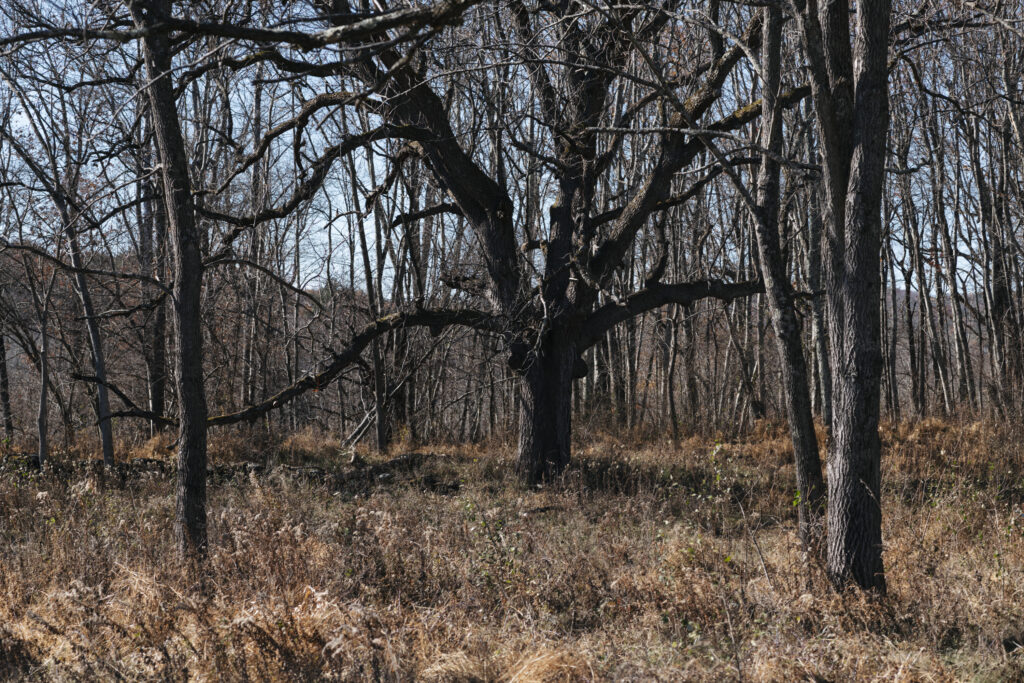
Through that process he’s been able to find the right spots to do things like the wild-simulated ginseng. That attunement to the landscape and store-housing nutritious products shows people they can do this too. In terms of financial viability, wild ginseng has been a great investment in our part of the country over the past ten years. The prices are high, making it a good investment for farmers who can wait for it to come due over time.
Mushroom cultivation utilizes what we are wrongly accustomed to regarding as waste. They grow out of things that are decaying and going back to the earth, so Ryan inoculates logs for the shiitakes to help break down existing deadwood, contributing to the healthy cycle of decay and regeneration. Drying those mushrooms is a form of preservation, and converting mushroom powder to broth further extends their useful life. We’re testing out shelf lives of the broth right now, but it will be quite long, adding a level of sustainability.
TS: Ryan is also doing workshops?
NJ: He is, yes. All of our projects have the expectation of sharing knowledge with the community, which we will be formalizing more going forward. Ryan just did a shiitake workshop; they inoculated twenty logs and attendees took them home after learning how to do it. You can grow shiitake anywhere, as long as you’ve got a damp, dark corner to put them in. It’s a great metaphor, since we are both literally and figuratively spreading the spores across the local community.
Ryan is also hosting an Elder Tree walk pretty soon. We have some very old trees in incredible shape, which is increasingly rare and special. We will invite members of the community to an all-day hike to visit them while learning about forest health from Ryan.
TS: Great. So the last one is Vagrant Beekeeping.
NJ: Vagrant Beekeeping and Raine bring climate resilience to Wally through pollinator landscaping. Raine introduces native plants that are both beautifying and enticing to different pollinators that help foster biodiversity and ecosystem health. Anyone can do this by allowing their yards to be wilder and more diverse; this is an easy way for people to make a positive impact in their own backyard. It works at every scale. From small backyard interventions to working with Raine as a client to mega restorations on a large farm, the ability to put these practices in place make a big difference through incremental action. Raine works with his clients to create really beautiful landscapes that act as classrooms for the clients, their families, and their neighbors to better understand the relationship between what’s growing and what’s propagating. Education is an important part of why we do workshops.
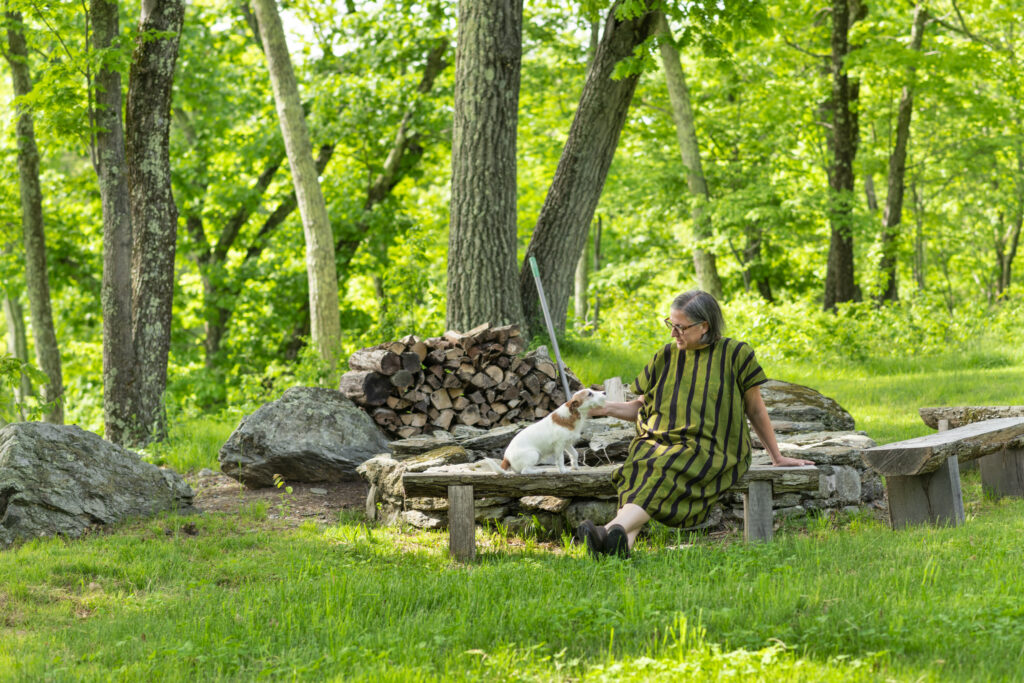
TS: We’ve talked about the tools that these entrepreneurs utilize. What can an individual person can take up and use? That’s something we’re focused on–empowering people to pick up tools themselves.
NJ: Gardening to support pollinators is a great one. Anyone who has access to even a small amount of green space is able to implement it. And gardening is good for mental and physical health! Taking that a step further includes the public education and advocacy piece–changing cultural norms. Living in Hudson, one can’t help but follow the Hudson Community Board on Facebook, where someone mentioned they got a ticket because their front garden was overgrown when it was “No Mow May.” The idea is that folks could learn from someone like Raine and then educate others to shift that cultural around what makes a “good” yard. He and I talked about the role that signage and tools like that can play in educating people to better understand what a healthy landscape can look like and achieve in the city, suburbs, or on a farm. Traditional quarter inch lawn grass occupies valuable green space that can be planted to foster biodiversity.
As we mentioned before, cultivating mushrooms is accessible for many people that don’t realize it, as are container gardens that take inspiration from Danny’s container farm. Most people can grow things on a window sill, on their porch, or in the backyard.
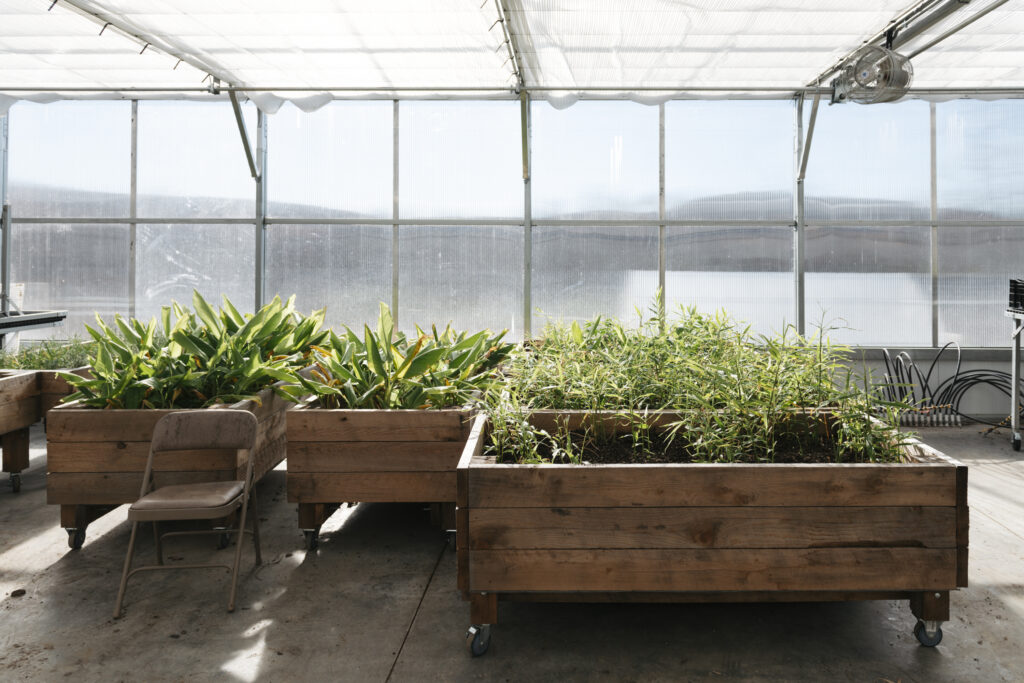
TS: Great. Let’s turn to Wally as an organization existing on its own, with its own tools. What tools is Wally Farms using to support shared economies and climate resilience?
NJ: Wally has a few different activity centers. We have the farm businesses we support and workshops we host that we already mentioned. We are also developing agritourism on the property. Agritourism is a form of tourism that involves visiting agricultural areas like Wally Farms to experience and engage in agricultural activities, learn about farming practices, building ecologically sustainable businesses, and the production of food and other agricultural products.
We currently offer two sustainably built homes for short-term rental on the property, with plans to grow. We’re sitting in one of two cabins that demonstrate carbon-negative building. Most of the building materials are from natural sources: wood for the structure, ceilings, floors, and interior walls, and an innovative insulation material called hempcrete made of hemp and lime for the exterior walls. Hempcrete controls indoor moisture; when it is humid inside, it absorbs the humidity and releases it when the air is dry. Under normal circumstances, it will not mold. Instead of emitting greenhouse gas during their production, these building materials sequestered carbon while they were growing. This CO2 is now stored in the building. These innovative materials help mitigate carbon emissions and are amazing insulators. Everything in our cabins is electric and includes energy-efficient appliances. The spaces are very luxurious, and furnished with beautiful gently used pieces, so that reduces our impact as well.
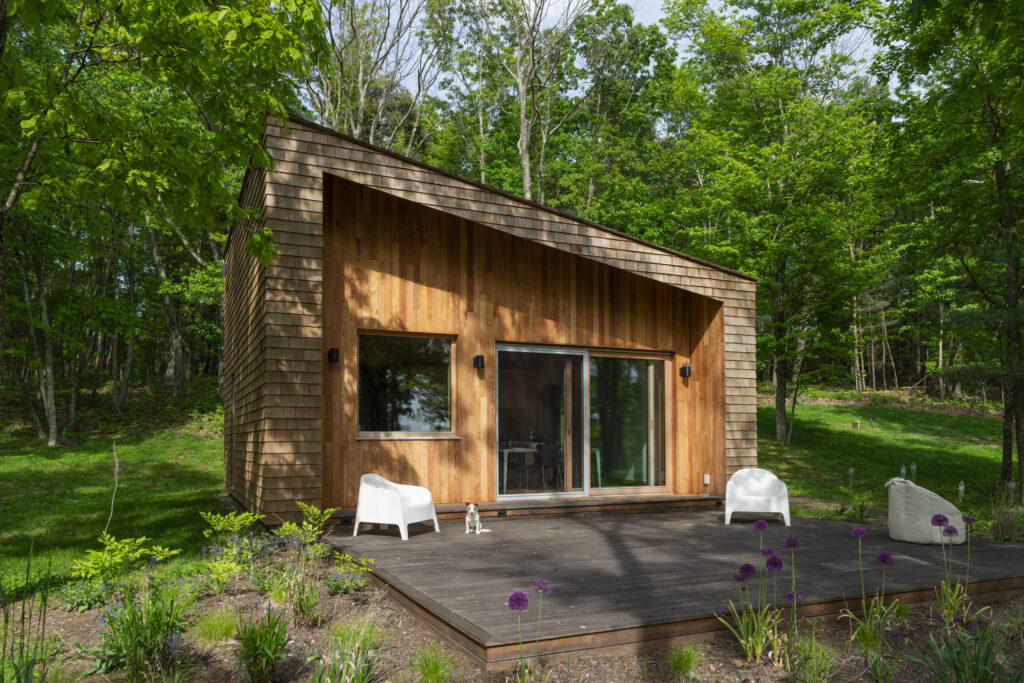
I’ve been working out of this building for a few months, so I’ve experienced seasonal transitions and temperature changes. I’ve never had to turn the heat on, since the building maintains its temperature naturally, and the materials dampen sound, so the structure is incredibly quiet.
Visitors can rent these out. It’s not only a gorgeous place to wake up and walk around the forest in solitude, but a space that shows visitors what is possible with ecological thinking. Visitors can also interact with the Wally Farms incubator businesses through the workshops, walks, and product samples that we leave in the cabins. Our goal is to increasingly integrate the agrotourism piece with the community of farm entrepreneurs we are building. It’s another way of connecting the climate-resilient businesses with consumers while sharing what we learn.
TS: I want to return to the idea of resource sharing and collaboration before we wrap up. Can you share more about that?
NJ: We want each of our incubator business to weave a climate-forward mindset through their projects. We also want them to be good farmers with good agricultural ideas that fit the market, setting themselves up for success. In an ideal world, we would like to add a few more components to Wally to create a complete system that complements our existing businesses. I could see adding a compost operation, livestock operation, and a vegetable operation that grows year-round in the greenhouse.
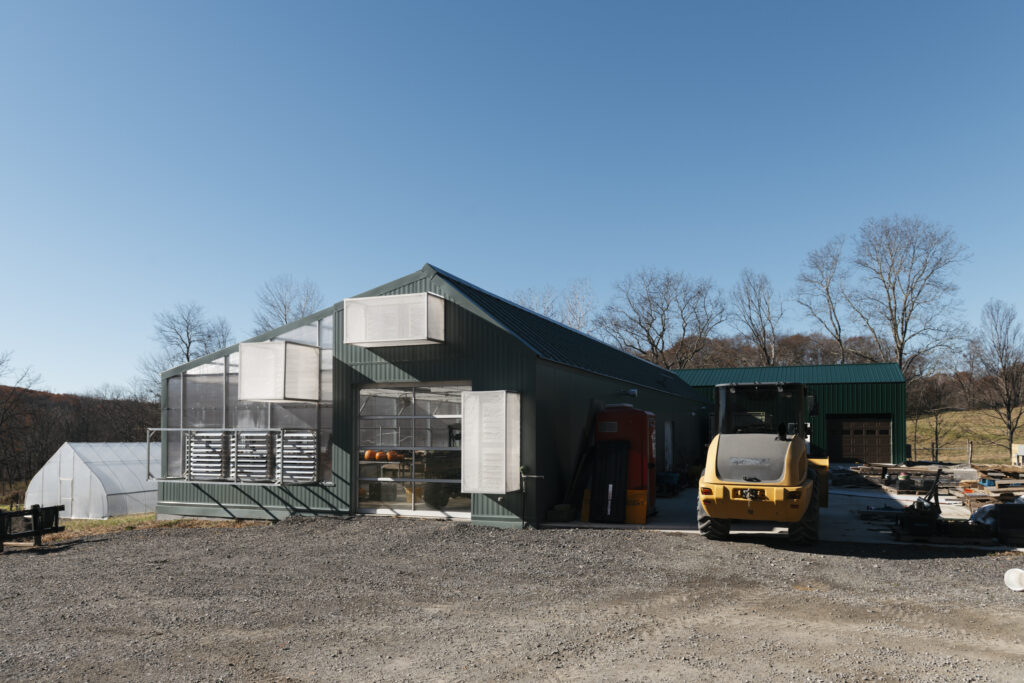
We will also be renting out agricultural space to mission-aligned businesses to help reduce their capital investment costs. For example, if a business needs table space in the greenhouse, or to grow in the hoop house, or a contract grazing sheep, we can help them secure space to do so.
There’s a lot of peer-to-peer learning opportunities within the Wally Farms ecosystem between our founders, myself, and the farmers that are already here. That proximity also creates the opportunity for farms to collaborate on innovative projects that they might not come up with otherwise.
TS: What about equipment sharing?
NJ: Equipment is shared through a text thread at our current scale, and we’ll build out a more formal process as we scale. We have one person who is in charge of making sure the equipment is being maintained properly and put away where it’s supposed to go at the end of every week. We have a neighbor farmer who does all of our infrastructure work, and he’s a great mechanic and engineer who helps maintain the equipment. I am going to implement a nominal annual shared equipment fee as we grow to help fund replacement and repair costs. We’ll also build out a process for seasonal planning once we have a vegetable farmer or a livestock farmer, since that will allow us to predict who will need the tractor when, what tools will be in regular rotation, things like that.
Ultimately, we want to have an agricultural machinery hub. We’re not ready to do that just yet, but it’s one of the capital projects that I see down the line. We want to be able to be more of an agricultural community-focused nucleus for the area at large, to make resources more accessible.
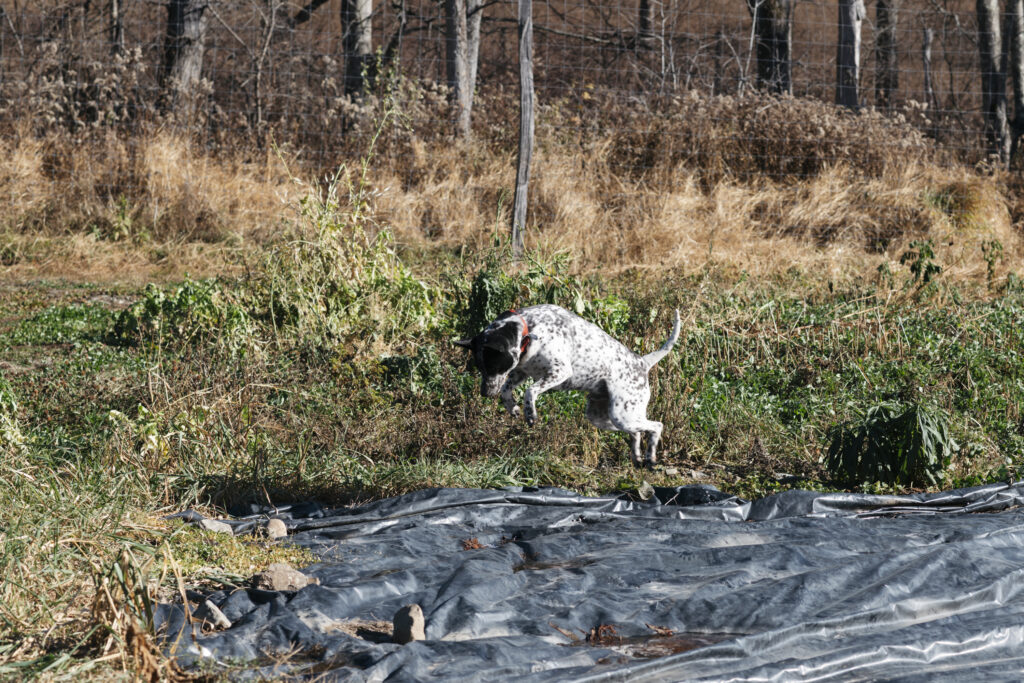
Learn more about Wally Farms at https://wallyfarms.org/ and follow them on Instagram @wallyfarms. Check out their upcoming workshops, follow the businesses they support, and reach out to them if you’d like to collaborate.
Photos by Kate Warren for Toolshed.
